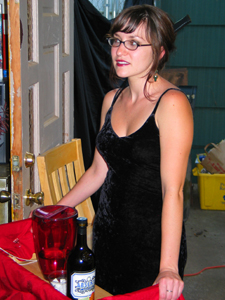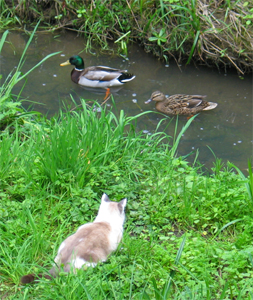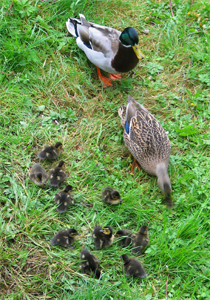 Last night, Mysterious Mr. M invited me on a little adventure. In heat rare for spring in Portland — 90 degrees — we arrived at the home of a fledgling literary promoter who hosts a regular salon inside her converted garage and under her covered car deck.
Last night, Mysterious Mr. M invited me on a little adventure. In heat rare for spring in Portland — 90 degrees — we arrived at the home of a fledgling literary promoter who hosts a regular salon inside her converted garage and under her covered car deck.
Though inspired by Gertrude Stein, the Lost Generation, and Paris back in the day, this is Portland, the city with citizens proud to sport “Keep Portland Weird!” bumper stickers on their Suburus. I had to wonder what awaited us.
In truth, the gathering was hipster, heavily 20-something, and a tad full of itself. However, I also sensed friendliness and sincerity beneath the swagger. Our hostess created a relaxed and open environment where even a non-hipster, mainstream kind of girl like me felt at home.
Absinthe helped. I like absinthe. A lot.
 I’ve imbibed the real stuff that’s illegal in the States. Chartreuse, practically lit from within, sweetened with sugar, tasting of licorice: yum. I remember going giggly and light. I remember sipping the concoction and being transported back to my childhood in Marin, to the anise-scented hills above my home.
I’ve imbibed the real stuff that’s illegal in the States. Chartreuse, practically lit from within, sweetened with sugar, tasting of licorice: yum. I remember going giggly and light. I remember sipping the concoction and being transported back to my childhood in Marin, to the anise-scented hills above my home.
Last night’s absinthe-lite wasn’t bad either (bought legally). In fact, not bad at all. I felt relaxed in a pleasantly heavy way. That tune “I Want to be Sedated” by the Ramones kept flitting through my head.
Mostly, I was content to chat with Mr. M about the complexities of short-story writing, the University of Iowa’s summer writing festival, and other literary arcana. And, of course, to companionably engage in what we writers often do in the midst of a crowd: observe.
 The heat was as much a presence as the artists and writers. We sweated to the words of various readers. Tapped our feet to a band that I can only describe as traditional French cabaret with Romany gypsy undertones. Accordions, clarinet, harmonica, flute, and so on. Happy music.
The heat was as much a presence as the artists and writers. We sweated to the words of various readers. Tapped our feet to a band that I can only describe as traditional French cabaret with Romany gypsy undertones. Accordions, clarinet, harmonica, flute, and so on. Happy music.
Fodder for a story? Potentially helpful connections made? Who knows. I had fun, and I might have to show up again.
(Our absinthe purveyor, ensuring the two drink max. –> )









